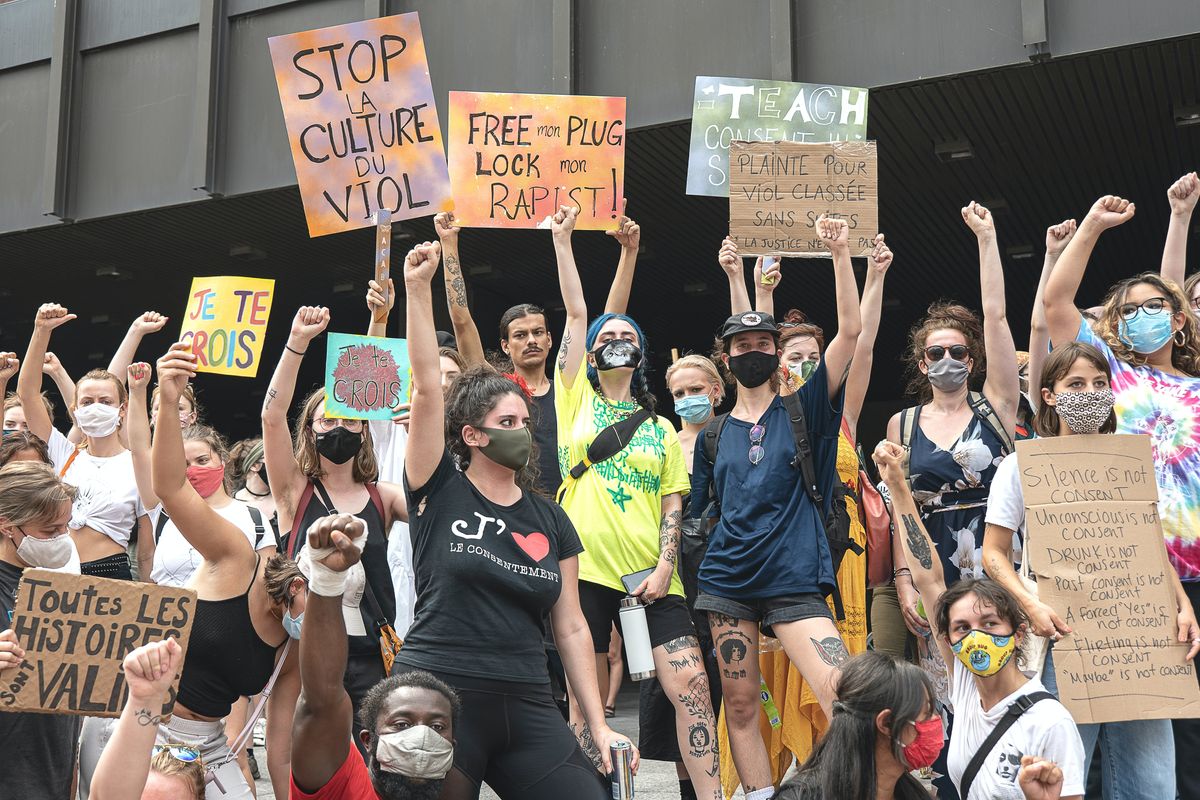How Trump is speeding up the religious war on women's bodies globally
Given the Trump Administration's appalling record on women's rights, coupled with eagerness to partner with authoritarian leaders, there is ample reason to distrust any global effort from the White House involving women and girls.

Group of people holding happy birthday greeting cards
This post was written by Gillian Kane, Senior Policy Advisor for Ipas
In August, a pregnant 10-year old girl from Southeast Brazil traveled almost a thousand miles to get an abortion. Abortion is highly restricted in Brazil, but legal in cases of rape. The child - who had been raped by her uncle from the age of six - was initially denied this right when staff at her local hospital refused to provide the service.
She then began her long journey north, to a different state. Her case became public. By the time she arrived at the new hospital, anti-abortion protestors had gathered, blocking her entrance. The child entered the hospital hidden in the trunk of a minivan, clutching two stuffed animals. On Aug. 17, she had an abortion.
Three days later, Todd Chapman, President Trump's U.S. Ambassador to Brazil gave a speech on U.S.-Brazil relations at a prestigious think tank in São Paulo. Chapman did not mention the case roiling the country. Nor did he reprimand the government for initially denying a legal health service to a child who had been raped.
Instead, buried in a throwaway line, was a reference to the Geneva Consensus Declaration, an international initiative he claimed would advance the health of women. Given the Administration's appalling record on women's rights, coupled with its eagerness to partner with authoritarian leaders, there is ample reason to distrust any global effort from the White House involving women and girls.
Indeed, the Consensus does not protect women's health. It is in fact, an international anti-abortion manifesto. Gutting abortion rights is one the Trump Administration's bedrock goals, and tomorrow's election is pushing them into overdrive. Evidence the ramming through of Amy Comey Barrett's nomination. Barrett's addition to the Supreme Court threatens the constitutional right to abortion; Roe v. Wade may soon be dismantled.
Trump and his right-wing Republican enablers dream of this happening all over the world. Last week, on Oct. 22, Secretary of State Mike Pompeo and Secretary of Health and Human Services, Alex Azar, formally revealed the Geneva Consensus Declaration at a virtual signing ceremony.
A possible Trump defeat has put intense stress on the Administration, and its conservative religious allies, to leave a lasting impact on the U.N. The Administration is using the Consensus to pressure the global community to join them promoting discriminatory standards and ending access to safe abortion.
This is a hard sell.
In four years the Administration has been incapable of bringing together a majority of nations to endorse their reactionary agendas. Since the summer, the U.S. has aggressively lobbied countries to join the agreement, but they have failed to find many signatories.
There are 193 U.N Member States. The Administration has only secured co-sponsorship from five: Brazil, Egypt, Hungary, Indonesia, and Uganda, and the endorsement of 27 other countries, none our long-time allies, and a majority with appalling records on women's health and human rights. This is an embarrassment for the U.S., and likely accounts for the delay in unveiling the document, which was first projected to launch in early September.
While presented as a consensus document, the Geneva Declaration, with a few dozen signatories, is anything but. Its legitimacy is also an issue. A document generated outside of formal UN negotiations is non-binding and unenforceable. Trump's America First foreign policy represents a retreat from long-established systems of global governance.
The U.S. has defunded or withdrawn from a number of U.N. agencies—many which run development and health projects—and abandoned global commitments providing the human rights framework for government accountability. Where the U.S. is still active at the U.N., they focus on reversing rights for women and LGBTQ people.
This withdrawal has weakened U.S. influence.
The Administration's isolationism is paradoxical; it wants to exit, but also preserve and exert authority. While fostering alternate UN multilateral cooperation, the Administration is also advancing Pompeo's Commission on Unalienable Rights. The Commission–-stacked withmembers who advance conservative interpretations of religious freedom and are hostile to women's and LGBTQ rights–has been rejected by traditional U.S. allies.
The Trump Administration can only find partnerships with governments who similarly disregard established human rights. That a U.S. Ambassador would broadcast an international anti-woman initiative days after a 10-year-old rape survivor was denied a legal abortion, also demonstrates its cruelty.
And that of its like-minded partners.
Immediately after the child received the abortion, the Brazilian government increased restrictions on access to abortion for rape victims. The U.S. has miscalculated. The Administration's ambition to position the Geneva Consensus Declaration and the Commission on Unalienable Rights as the standard setting coalition and human rights framework will be unfulfilled. There is no international consensus to support a reactionary agenda that eviscerates women's rights.
The Trump Administration cannot drive this agenda at the global level, no matter what happens on Nov. 3.


